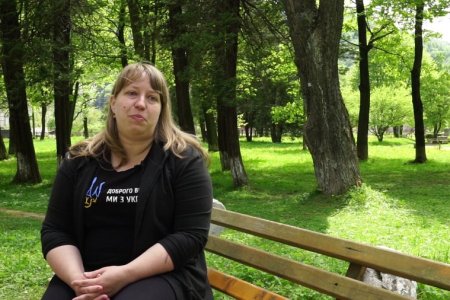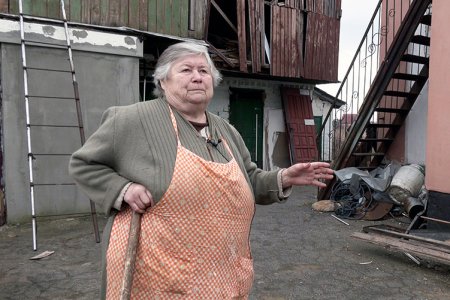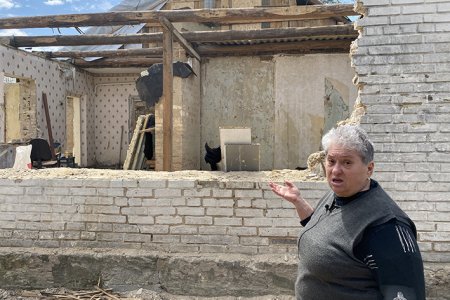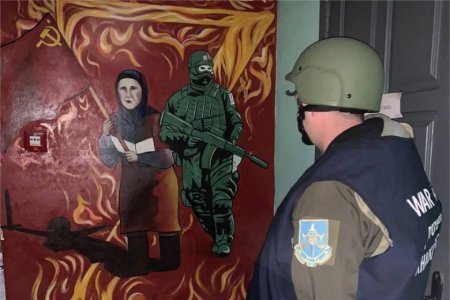My old man died, and I lived in the house alone. I am a pensioner but have already restored broken batteries and covered a leaking roof. Everything was damaged: slate and roofing fell off, and two entrance doors were missing. Eight windows, a threshold, a balcony, a gate, a barn, a door to the cellar — everything was broken. If you want, I will open the inner doors for you — see for yourself. Maybe they were hiding because they didn’t steal anything — neither conservation nor compote.
The glass shards in the house were knee-deep, and I took out eight bags. There were a lot of bloody bandages and syringes on the couch I used to sleep on. The army photographs of my late son were spread out on the second couch. The Russians checked everything and scattered everything. After my husband’s funeral, two bottles of vodka remained. So they stole it. They lived in houses, and tanks drove around the yards.
Could you imagine that there will be a full-scale war?
No, I thought that Russia was our brother. We were friends before. And then there is the war. But I prepared a little: I used the basement in my son’s house. I had a bad cellar, so I ran to the next street to him. And in the afternoon, I returned to look after the chickens. When I returned from the evacuation, there were no chickens or the rooster. And the barn’s doors were broken.
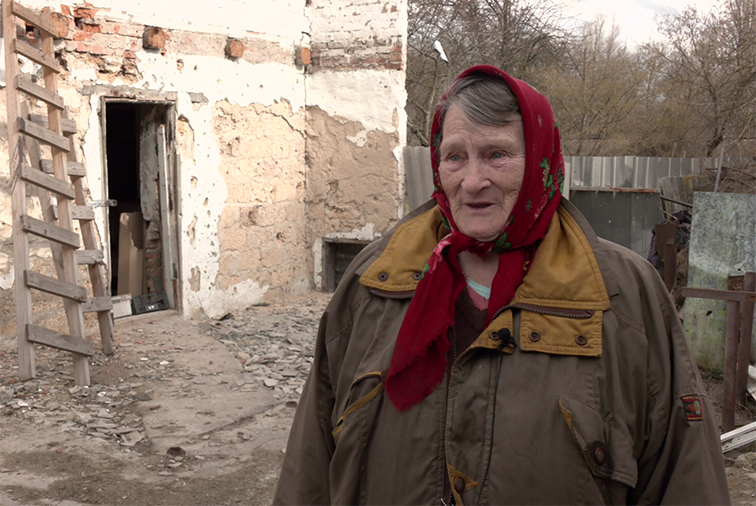
How was the first day of the war for you?
At 5:20 in the morning, it started to boom. We were already sitting in my son’s cellar. We spent the night in the house, but as it banged, we dressed small children quickly and ran to the cellar. We went in and out of the cellar. We ran into the house to grab something and rushed back. That’s what I remember.
Did you think about evacuation?
No. I thought we would somehow get along, and then evacuation was announced. Take the kids out! The nurse passed the information on to my son so that they could quickly take the children out. I dropped everything, and we went by bus. There was a green corridor, and everything was safe. We left on 13 March. It was the first departure. And the Russians were already in Dymerka. We went close to the Cherkasy region. I lived in Brovary with a friend for a while. The Russians have already walked along Dymerka but have not yet reached our part. After I left, a neighbor called and said: “They live in your house.” And then the second neighbor called and said she was in her house, and the Russians told her: “Get out of here!” The house was burned down before her eyes.
How long did you spend in evacuation?
One month. We returned a month later. I came here and didn’t recognize anything. I couldn’t get into the yard. What was going on here?! Everything was lying around the balcony; I had already cleaned it up. It was impossible to enter the house. It took me a month to remove the glass. I lived with my son. They went through his home but didn’t touch anything. Ten houses away from me, the house burned down, but my son lives at the end of the village, and nothing was touched there. I hired people, bought batteries, and they repaired the heating for me. I borrowed money so that the builders would procure slate. When everything was done, I returned home. Where else can I live?
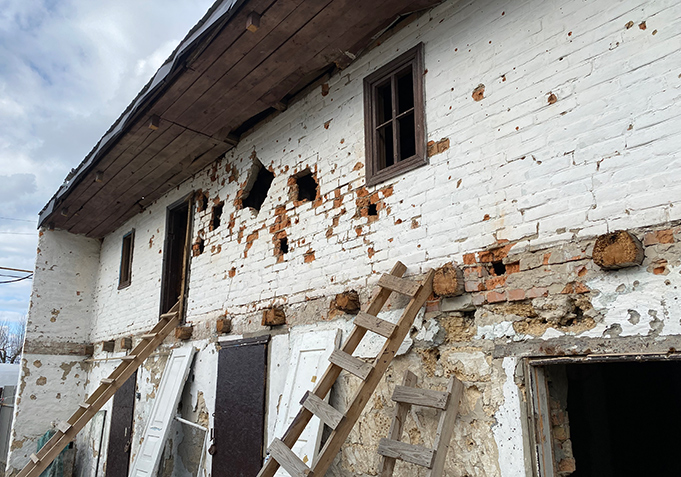
What happened in the Velyka Dymerka?
We evacuated, and what happened next, I don’t know. People say there were a lot of Russians. And they lived here, and they lived there. They lived in one house, but they burned another. They say that Russians took clothes from the two homes. TVs and washing machines were broken. They drove through the bushes on tanks and damaged everything all around. They ruined everything.
What about your property?
The cellar was destroyed, and the benches were removed. I spoke about the roof, windows, threshold, and front doors. The new doors have already been installed. The government gave me one. I can show you the papers. Everything was paved here, and they damaged everything.
What are you planning to do next?
Well, I will restore everything slowly. What plans can there be… Another question is where to get money for restoration.
How is your son doing?
They also returned, and their place is all intact. Everything is fine, unlike me. But there are three children, and there is no help for them, so they ask the mother for potatoes or carrots.
Has your attitude towards Russians changed?
The attitude has changed. Now I do not consider them brotherly people. They are just fascists. That’s what I can say. They just mock us and kill innocent people! Why do we need this war? For what? Who knows. I don’t understand. Why did it happen? People lived as they should, and they turned on us... God knows what happened.
